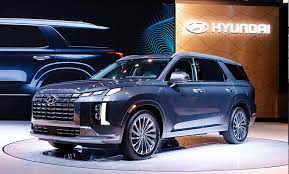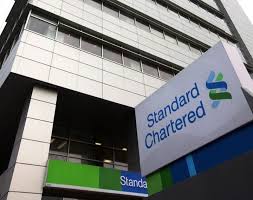As part of Hyundai Motor Group’s planned electric car assembly facility in southeast Georgia, LG Energy Solution and Hyundai Motor Group on Thursday announced plans to construct a $4.3 billion electric battery plant.
Production might begin as soon as the end of 2025 thanks to the corporations splitting the investment.
The battery plant, according to Hyundai Motor Co. CEO Jaehoon Chang, will “create a strong foundation to lead the global EV transition,” he said in a statement. Chang also said the business aims to accelerate efforts to develop electrified Hyundai and Kia vehicles in North America.
Chang stated that Hyundai Motor Group is concentrating on electrification initiatives to establish a dominant position in the international car market.
The South Korean carmaker announced that it would spend $5.5 billion in Ellabell, Georgia, just west of Savannah, to assemble electric vehicles and batteries. The factory is expected to employ 8,100 people and start making cars in 2025.
Republican Governor Brian Kemp’s spokeswoman, Garrison Douglas, stated that the 3,000 employees at the battery facility will be included in the 8,100 total jobs, and the $4.3 billion investment would be included in the previously stated $5.5 billion total.
The adjacent vehicle assembly factory’s first estimated production of 300,000 electric vehicles per year is expected to be met by the batteries produced in the Hyundai/LG complex. According to Hyundai, the Georgia plant could eventually increase production to 500,000 vehicles annually. Kemp said in a statement that the project is the most recent step toward Georgia being the country’s EV capital. “This is exactly what we envisioned when Georgia landed the Hyundai Metaplant in May of last year,” Kemp said.
Along with the assembly and battery plants, auto part suppliers have committed to spending over $2 billion and employing 4,800 locals in the area surrounding the Hyundai facility.
The announcements are part of a nationwide land rush for batteries and electric vehicles. To be eligible for the entire $7,500 EV tax credit under the U.S. Inflation Reduction Act, EVs must be constructed in North America and a specific percentage of their battery components and minerals must originate in North America or a U.S. free trade partner.
Hyundai and Kia’s automobiles are not currently qualified for the tax credit.
Democratic U.S. Sen. Jon Ossoff of Georgia stated in a statement that “the IRA’s manufacturing incentives continue to bring jobs and investment to Georgia.” “I still want Georgia to lead the world in producing sophisticated energy.
According to LG, this will be the eighth battery factory it has built or is planning to build in the United States. This is just one illustration of how federal incentives are enticing businesses to locate operations here.
This is the second sizable electric battery factory that Hyundai is constructing in Georgia with a partner. A new plant will be built northwest of Atlanta by Hyundai and SK On, a division of South Korea’s SK Group, with a $4 billion to $5 billion investment. This plant would produce electric batteries for Hyundai and Kia electric vehicles that are produced in the United States. This Cartersville factory is expected to start operating in 2025 and will have a projected 3,500 employees.
Hyundai will require batteries for more than simply Ellabell-built automobiles. The firm started constructing its electric Kia EV9 big SUV at the Kia facility in West Point, Georgia, in April. The company is already assembling electric vehicles at its plant in Montgomery, Alabama.
Hyundai’s supplier base will be more diverse as a result of its partnerships with LG and SK, providing the automaker access to many battery manufacturers.
Douglas stated that no additional incentives would be provided because the battery factory is a part of the larger Hyundai complex.
Georgia’s state and local governments have already committed to providing tax rebates and other incentives totaling $1.8 billion. According to Greg LeRoy, executive director of Good Jobs First, an organization that is wary of subsidies to private corporations, it is the largest subsidy package a U.S. state has ever provided an automobile company.

















